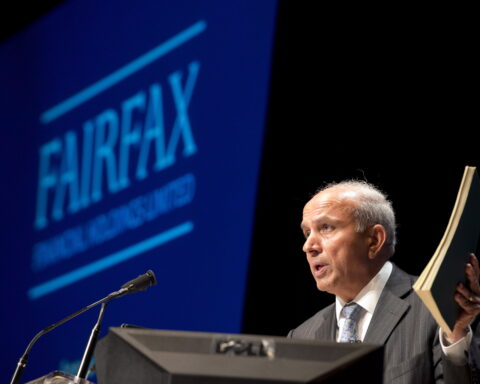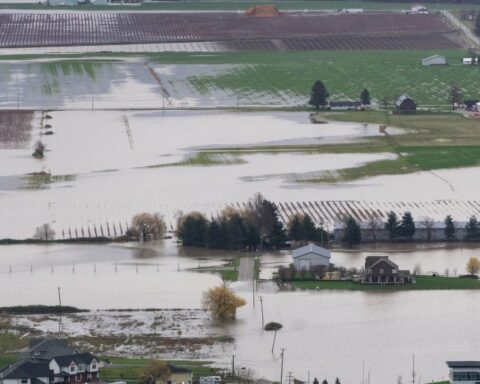Advocates say new regulations that will force banks and insurance companies to disclose climate risks don’t do enough to force financial institutions to address those risks, too. But such prescriptive climate rules might not actually result in lower emissions.
Last week, Canada’s financial regulator introduced new rules requiring the country’s largest banks and insurance companies to disclose their climate risks and carbon emissions.
Starting in 2024, the Office of the Superintendent of Financial Institutions (OSFI) will require federally regulated banks and insurance companies to start collecting information on their CO2 emissions and climate risks for annual disclosure beginning in 2025. Other federally regulated financial institutions will be required to start disclosing in 2026.
The new rules will require institutions to report full Scope 1, 2 and 3 emissions in keeping with international climate reporting rules. OSFI says its rules will also be subject to new climate accounting standards to be released soon by the International Sustainability Standards Board.
Climate-finance advocates responded to the rules by saying they don’t go far enough, as they don’t compel banks and insurance companies to grapple with the extent of the risks.
“Canada’s financial institutions should cut emissions, not just count them,” says Julie Segal, senior program manager for the climate advocacy group Environmental Defence. “In a sinking boat, you have to plug the leaking holes, not just disclose them.”
In a brief before the new climate regulations were finalized, Environmental Defence, Ecojustice and Shift Action for Pension Wealth and Planet Health (three leading climate policy organizations) called on OSFI to require financial institutions to create “credible climate plans” for approval by the regulator. They also recommended that OSFI require institutions to set aside capital buffers (which would hit their bottom line) as protection against climate risks. OSFI rejected both suggestions.
Implementing their suggestions could force Canadian financial institutions to divest their fossil fuel company loans or refuse to insure oil and gas companies. But this would not likely create major financing difficulties for these companies (at least in the short term) since they could turn to foreign banks and insurance companies unaffected by the Canadian rules.
Such a result would not rein in the fossil fuel industry or result in lower emissions.
For Canada, which has the world’s fourth-largest oil industry and sixth-largest gas sector, climate poses potentially huge risks to the country’s biggest financial institutions, which are all intricately involved in the fossil fuel industry.
One estimate puts potential losses to the oil and gas sector in Canada at US$100 billion as it adjusts to the transition to an economy with lower greenhouse gas emissions. Banks making loans to the sector could face a large share of these losses.
Looking at the economy as a whole, banks and insurance companies face additional potential losses from climate- and weather-related damage to businesses, homeowners, farmers and infrastructure as well as growing threats to human health.
De facto climate regulator
The expansion proposed by Environmental Defence, Ecojustice and Shift of the new climate regulations also would have represented a massive increase in OSFI’s regulatory power, essentially setting it up as a de facto climate regulator in Canada through the financial system.
OSFI’s mandate is to ensure that financial institutions abide by rules that ensure the safety and security of pension beneficiaries and the holders of bank deposits and insurance policies. This includes regular reviews of risk-management policies and practices and mandatory capital minimums based on factors such as business and mortgage risk.
OSFI focuses this mandate on short-term risks. While climate change does pose long-term risks to the fossil fuel industry, Canadian oil and gas assets have become exceedingly profitable in the short term. There are few immediate and significant climate-related risks to the banks that issue loans to the sector or companies that insure them (although there are other environmental risks, as shown by the recent oil sands leak at Imperial Oil).
However, increased regulation of the oil and gas industry could change the situation. The federal government has pledged to impose a cap on oil-and-gas industry emissions and is reviewing possible increases in the stringency of carbon-pricing mechanisms, rules that could raise the short-term transition risk for the industry. As well, new rules to eliminate methane leaks could increase climate liability, posing new insurance risks.
OSFI has indicated it could become more prescriptive over time, which is likely as the oil and gas industry itself comes under greater regulation and short-term climate risks become more apparent.
Eugene Ellmen is a former executive director of the Canadian Social Investment Organization (now Responsible Investment Association). He writes on sustainable business and finance.







